Natural Sugar Alternatives: Sweeten Your Life Without the Guilt
Craving something sweet but worried about sugar’s effects on your health? You’re not alone. The modern diet is overloaded with refined sugar, which has been linked to obesity, diabetes, heart disease, and even mood disorders.
But the good news? You can still satisfy your sweet tooth without compromising your health—thanks to natural sugar alternatives that are both delicious and nourishing.
Let’s explore some guilt-free sweeteners, their health benefits, and the science behind why they’re better for you.
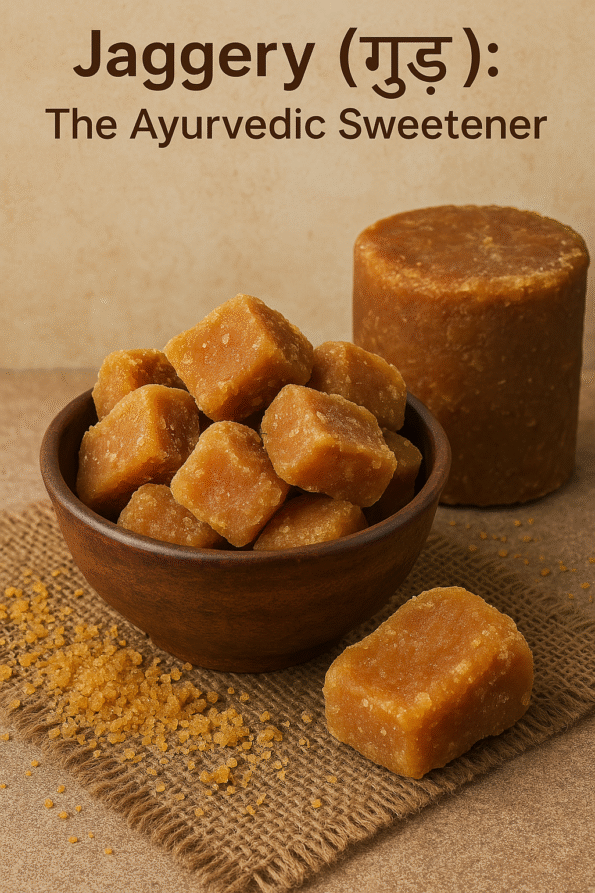
🟠 1. Jaggery (गुड़): The Ayurvedic Sweetener
What it is: A traditional Indian sweetener made from sugarcane juice or palm sap, jaggery is unrefined and retains natural minerals.
Health Benefits:
-
Rich in iron, magnesium, potassium, and antioxidants
-
Helps detox the liver and purify the blood
-
Boosts digestion and metabolism
Science Says: Unlike refined sugar (which is stripped of all nutrients), jaggery contains molasses, which gives it trace minerals and a lower glycemic index (GI)—meaning it causes a slower rise in blood sugar levels.
🧡 Try This: Add to herbal teas, sweeten porridges, or use in baking instead of white sugar.
🍯 2. Raw Honey: Nature’s Antibacterial Elixir
What it is: Raw, unfiltered honey straight from the hive—unheated and rich in enzymes.
Health Benefits:
-
Contains antioxidants and antimicrobial properties
-
Soothes sore throat and boosts immunity
-
Acts as a natural prebiotic, supporting gut health
Science Says: Raw honey contains flavonoids and phenolic acids—powerful antioxidants that reduce oxidative stress. Studies have shown that honey has antibacterial effects against pathogens like E. coli and Staphylococcus aureus.
💛 Try This: Drizzle over toast, yogurt, or mix into warm (not hot) water with lemon.
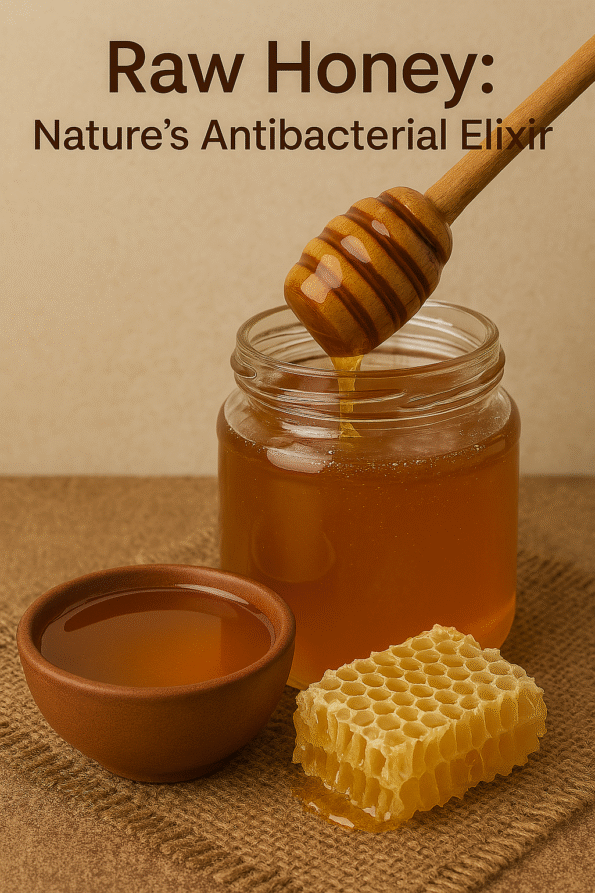
-
What it is: Derived from the sap of coconut palm flowers, it’s minimally processed and looks like brown sugar.
Health Benefits:
-
Contains zinc, iron, calcium, and inulin (a prebiotic fiber)
-
Low glycemic index (~35), ideal for blood sugar control
-
Tastes like caramel and is perfect for baking
Science Says: Coconut sugar’s GI is significantly lower than table sugar (GI ~65). Inulin slows glucose absorption, making it a better choice for those managing insulin resistance or diabetes.
🤎 Try This: Replace sugar 1:1 in baking recipes or use in smoothies and sauces.
-
3. Coconut Sugar: The Diabetic-Friendly Choice
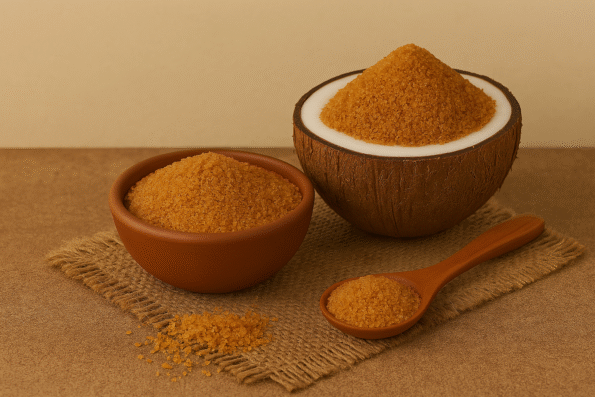
🌿 4. Stevia: The Zero-Calorie Leaf
What it is: A sweet herb native to South America, stevia is 200–300x sweeter than sugar but has no calories.
Health Benefits:
-
Helps in weight management and diabetes control
-
No effect on blood glucose or insulin levels
-
Supports oral health (unlike sugar, it doesn’t feed bacteria)
Science Says: Research confirms that stevioside and rebaudioside A (the main compounds in stevia) are safe and may help lower blood pressure and reduce post-meal blood glucose spikes.
💚 Try This: Use stevia drops or powder in teas, coffee, or low-cal desserts.
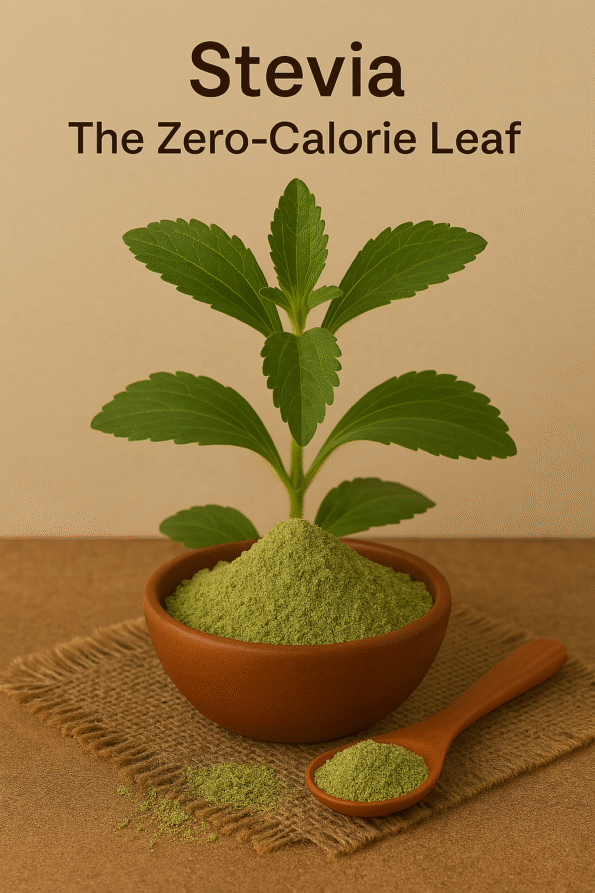
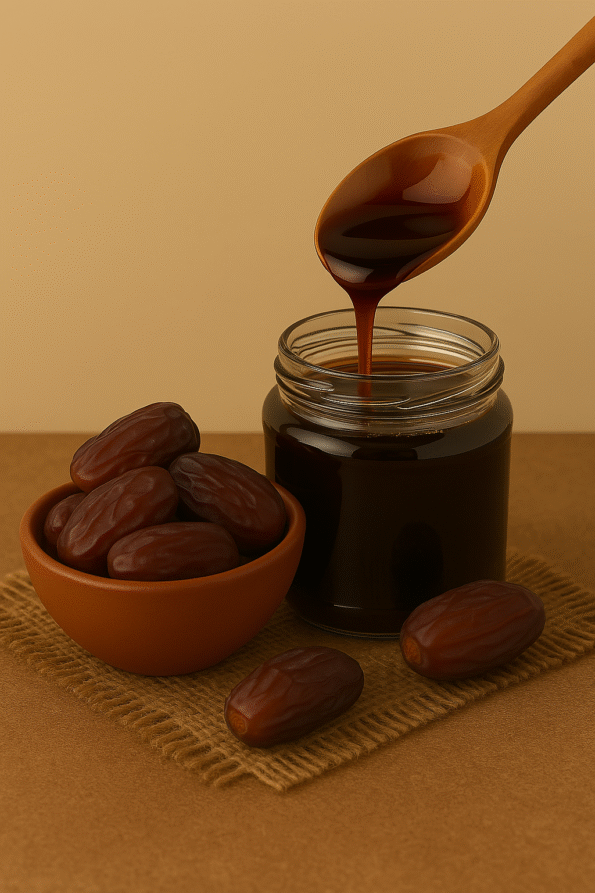
5. Date Syrup & Dates: Nature’s Candy
What it is: Made from pureed or boiled dates, this syrup is nutrient-rich and naturally sweet.
Health Benefits:
-
High in fiber, potassium, and antioxidants
-
Promotes bowel regularity and bone health
-
Natural source of energy without sugar crashes
Science Says: Dates contain polyphenols, which reduce inflammation and oxidative damage. Their high fiber content slows down sugar absorption, making them safer than refined sweeteners.
❤️ Try This: Blend into smoothies, drizzle over pancakes, or use in energy balls.
Conclusion
You don’t need to give up sweetness—you just need to choose smarter sweeteners. These natural alternatives offer more than just taste—they deliver nutrition, balance, and healing benefits backed by science.
Whether you’re managing diabetes, focusing on weight loss, or just want to live cleaner, switching to these natural sugar substitutes can help you sweeten your life—without the guilt.






You must be logged in to post a comment.